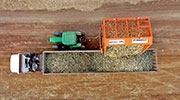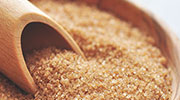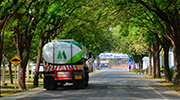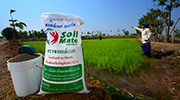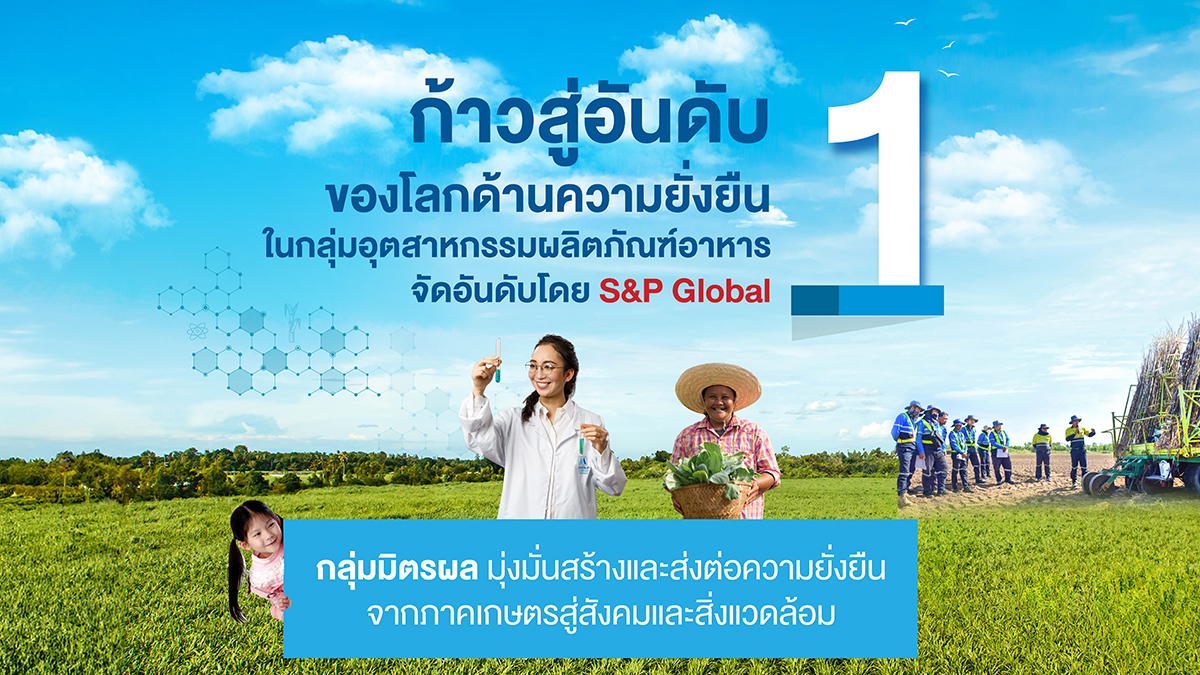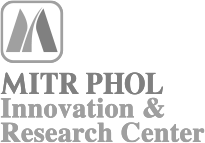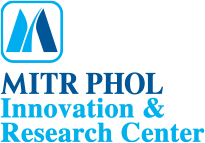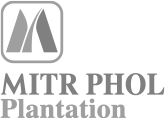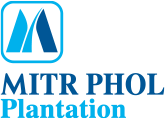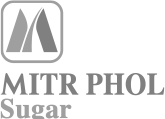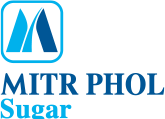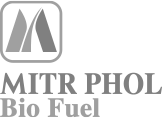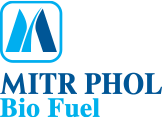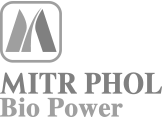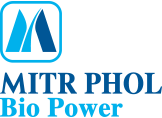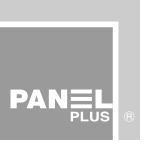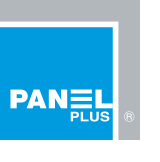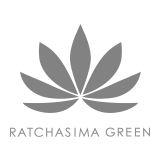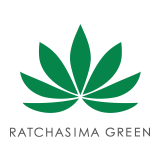Farm Management
Farm Management
Key Stakeholders : Farmers / Communities / Employees / Customers and Consumers / Suppliers
Mitr Phol Group operates its business by promoting sugarcane farmers within a radius of 50 kilometers around our factories to plant sugarcane. In addition, research and experiments have been carried out in the Company's farming areas to test sugarcane varieties, agricultural machineries, and modern technologies for sugarcane plantation management, become sources of study visits, and extend the results to farmers.
With recognition of the importance of good soil management, since it is a crucial factor for the growth of all plants, we emphasize soil improvement, structure, and fertility, essential variables for growth and productivity. Therefore, good soil management in our entity means the improvement and maintenance of soil according to physical characteristics and basic properties of its intrinsic nature, e.g., moisture, minerals, nutrients, and organic substances, all of which depend on soil management skills and pest management of farmers to obtain soil with good quality for sugarcane growth and good productivity worthy of the investment. Lack of good management will affect agricultural produce as raw materials in the upstream stage, which are the primary raw materials of the Mitr Phol Group and its further business, as well as the income, farmers' health, contractors, and the environment.
Regarding pest management, the impact of climate change has resulted in increasing pest infestation that implies more responsibility of farmers on pest management. However, improper use of pesticides will affect human health, due to chemical accumulation in farmers' bodies, the environment, as well as biodiversity.
Hence, we strive to motivate farmers to adopt good soil management and look after pest management, such as campaigning for farmers to rest the soil by planting legumes, jujubes, and upland rice. Since legumes increase nitrogen in the soil by capturing nitrogen from the air and storing it in their underground root knots. After nourishing the soil with nitrogen by growing legumes, we can reduce chemical fertilizers and disallow and deter certain types of pesticides. This can be a strategy to help mitigate and adapt to climate change on time.
Management Approach
We have the goal of good soil management to reduce chemical usage and set a target to cut fresh sugarcane, as well as establish a policy on pesticide usage, with details as follows.
Goal of Good Soil Management
- The Company establishes policies on budget approval to support farmers regarding soil quality improvement. For example, financial support for soil nourishing plants and transportation fees to contractors applying vinasse (soil improver) and filter cake to sugarcane plantations for farmers to increase soil fertility. In 2022, there were promotional policies with approval money for more than 1,200 million baht.
- Give advices on fertilizing according to soil analysis and at appropriate time, which are recommended by Mitr Phol Group Innovation Center.
- Promote soil maintenance by encouraging fresh sugarcane cutting, covering the ground with sugarcane leaves, which will help maintain topsoil, keep humidity and allow decomposition to add organic matters to the soil.
Targets of Fresh Sugarcane Cutting and the Purchase of Sugarcane Leaves
Mitr Phol Group aims to increase the amount of fresh sugarcane with the promotional target of fresh sugarcane to 95% by 2025/26.
Pesticide Usage Policy
Mitr Phol Group is determined to encourage farmers to reduce chemical usage in sugarcane plantations. Furthermore, if necessary, chemicals in use must be permitted by laws and in appropriate amounts, which do not exceed the standard for sustainable sugarcane and sugar production or Bonsucro. In addition, Mitr Phol Group has a policy to prohibit the purchase or usage of Chlorpyrifos, reduces the use of Paraquat, and forbids the usage of hazardous chemicals concerning agriculture and according to the watchlist of the Department of Agriculture for the total of 108 types as announced since 2018.
Significant Changes
1. Management of Soil Health Issues
- Operational guidelines for soil health by Mitr Phol Group start from soil improvement planning, for example, leaving a certain rest time for soil in the plots, known as soil rest, to pause plant growth and treat the soil for availability in the next sugarcane planting. Mitr Phol has set a budget to encourage farmers with costs of soil nourishing plants and fees for vinasse (soil improver) and filter cake transportation, and supply vinasse and filter cake by hiring contractors to carry them to sugarcane plantation of the farmers to increase soil fertility.
- Promote Mitr Phol Modern Farm for Sugarcane Plantation in order to reduce trampling on soil by tractors and cane harvesters, which damage soil structure.
- Support on the use of technology in farm management, such as using drones to spray weed control after sugarcane planting, which eliminates the need of tractors with Boomsprays in sugarcane plantation.
- Aid an increase of fresh sugarcane with a target of 95% by 2025/26 to increase soil fertility and keep moisture by urging preparation of sugarcane plots to accommodate sugarcane harvesters, encouraging farmers to buy sugarcane harvesters while recommending leaf pruning machines for those with small plots inaccessible by sugarcane harvesters.
- Cut fresh sugarcane and cover the ground with sugarcane leaves, which will help maintain topsoil and become fertilizers after decomposition, add microorganisms and nutrients for the next sugarcane generation. Also, the remainder of the sugarcane leaves can be sold to factories as additional fuel, and become an incentive for farmers to cut more fresh sugarcane for additional income due to the purchase price of 1,000 baht/ton.
- Perform soil sampling in the analysis of and recommendation for fertilizer formula suitable for soil conditions by Mitr Phol Group Innovation Center in order to reduce excessive amount of nutrients and farmers' costs.
- Recommend fertilizer usage according to soil quality without excessive fertilizer, which will affect soil pH and damage the soil.
2. Mitr Phol Modern Farm Project
Mitr Phol Group adopts guidelines for efficient and sustainable sugarcane management based on the modern agriculture principle, Mitr Phol Modern Farm, to assist sugarcane farmers by applying modern agricultural machinery technology to support sugarcane farming through Modern Farm approach with operating principle of 4 Pillars Plus as follows:
- Pillar 1 Legume Rotation Crops. Continuous planting of sugarcane without soil rest will cause the accumulation of sugarcane pests. Therefore, the soil should be rested and planted with other plants, especially legumes, because legumes have rhizobium bacteria in root knots, which can capture nitrogen from the air to become soil fertilizer for sugarcane in the future. Hence, natural soil improvement and nourishment can help break the cycle of diseases and pests, reduce chemical usage, and generate extra income from the sale of the produce.
- Pillar 2 Controlled Traffic. Build Bed Forms with bed renovators to facilitate the accessibility of agricultural machinery in every step, from land preparation, planting, and cultivating to harvesting. By specifying gaps between grooves and raising ridges above roadways, agrarian machinery can access each activity by moving along designated tracks without trampling on bedforms, which helps reduce soil compaction and damage due to harvesting and extend the life of the cane stump.
- Pillar 3 Minimum Tillage. For traditional sugarcane farming, farmers must plow entire plots before planting new sugarcane. However, the new approach of Mitr Phol Modern Farm will only plow raised bed forms, hence helping maintain soil structure and reduce the area of land preparation approximately by half, which saves fuel and shorten soil preparation time before sugarcane planting for availability to plant new sugarcane in time to the decreasing soil moisture.
- Pillar 4 Cutting Fresh Sugarcane for Trash Blanket. Cutting fresh sugarcane for trash blanketing will help maintain soil moisture and control weeds simultaneously, thus reducing herbicide usage by default, as well as increasing productivity per rai because sugarcane leaves will decompose into organic fertilizer for the next sugarcane generation. In addition, refraining from burning sugarcane leaves helps preserve topsoil and beneficial soil microorganisms.
- Water as Replenishment Formula for Sustainability (Irrigation). Critical supplements are water and irrigation, which are important factors for more efficient sugarcane cultivation.
Click for details about “Mitr Phol Modern Farm”
Mitr Phol Group encourages sugarcane farmers to grow sugarcane according to "Mitr Phol Modern Farm" principle in all factory areas by supporting farmers who possess sugarcane harvesters as local prototypes. In 2021/22, the accumulated area was 165,200 rai (increased from 2020/21 of 48,900 rai).
3. Fresh Sugarcane Cutting Operation
Mitr Phol Group has continuously campaigned for farmers to cut fresh sugarcane by providing knowledge of modern sugarcane farming according to Mitr Phol Modern Farm Principle, which emphasizes the utilization of agricultural machinery and technology to help increase efficiency, i.e., small farmers use sugarcane leaf pruning machines. In contrast, medium and large farmers use cane harvesters to reduce labor, chemical usage, and farm management costs. It also helps generate more income for farmers by selling sugarcane leaves to biomass power plants and sustaining the ecosystem. The Company also cooperates with the government through various measures to promote measures to reduce sugarcane burning.
- In 2021/22, the proportion of fresh sugarcane was 13.9 million tons (72%) of total sugarcane, an increase from 2020/21 by more than 3.6 million tons.
- In 2021/22, Mitr Phol Group purchased more than 500,000 tons of sugarcane leaves for biomass fuel production to increase farmers' income, reduce sugarcane burning, and lessen environmental and community impacts.
4. Guidelines for Pesticide Usage
Mitr Phol Group establishes guidelines for pest management as follows:
- Plan an adjustment for proper periods of sugarcane planting to avoid weeds
- Encourage control of plant pests by biological methods as Mitr Phol Group Innovation Center will produce and deliver green fungi and parasitic wasps for farmers and assign researchers to monitor and observe the areas.
- Regulate herbicide usage as needed and in accordance with government policies, by announcing purchase order control for governing farmers in the areas.
- Supply small 24 - 33 horsepower (hp) tractors to farmers, who can access their farms and build grooves, to manage weeds by crop husbandry rather than using chemicals.
- Approval of financial support for agricultural tools, i.e. tractors and double-groove sugarcane planters to increase productivity, has been more than 153.62 million baht.
5. Guidelines for Fertilizer Usage Based on Soil Analysis Results in Mitr Phol Group
Mitr Phol Group implements guidelines for fertilizer usage based on soil analysis results according to soil sampling in both sugarcane and cassava. After soil samples are collected from sugarcane plantations around our eight factories and cassava plantations around our factory covering a total area of 1.5 million rais (2,684 samples) to be analyzed, recommendations on fertilizer formulas and a map of fertilizer usage will be developed. The application of fertilizer usage based on soil analysis results in Mitr Phol Group is to increase organic substances in soil and use chemical fertilizers based on values from soil analysis correctly. Mitr Phol Group has recommended fertilizer formulas based on soil analysis results of each factory for sugarcane planting in 2022/2023 as guidelines to support farmers.
6. Operations for BONSUCRO - Sustainable Sugarcane and Sugar Production Standards
Bonsucro is a standard for sustainable sugarcane and sugar production that not only considers the sugar manufacturing process but also covers sugarcane farming activities in every step of the farmers, whether it is to achieve Good Agricultural Practices (GAP) and to record data on a plot-by-plot basis. This includes information regarding fertilizers, pesticides, fuel, electricity, water, labor, sugarcane produce, and fresh sugarcane cutting areas, which are divided into regions using irrigation, supplementary water and rainwater, as well as packaging cleaning, storage, separating, and reusing, or selling for recycling, to ensure that sugarcane and sugar production complies with the standard.
For the “Bonsucro” certification, the systems and processes for sugarcane and sugar production must be in compliance with the requirements prescribed in the standard, which cover five key principles as follows:
- Compliance Principle - All levels of sugarcane and sugar production must comply with the laws and grow sugarcane on plots with true title deeds.
- Human Rights Principle and Labor Laws - Human rights and International Labor Organization (ILO) Standards must be respected without exploiting child labor and forced labor. Also, there must be adequate provision of clean drinking water along with safety measures for workers.
- Production Management Principle - There must be efficient management of raw materials and production processes to achieve sustainable development.
- Biodiversity Principle - This requires management of biodiversity and ecosystems in sugarcane plantations, which must not use prohibited agricultural chemicals as well as excessive fertilizers and chemicals beyond standard levels.
- Continuous Improvement Principle - For instance, we train employees and workers about their job responsibilities to continuously improve their skills, cover the soil with sugarcane leaves after harvesting for more than 30 percent of the freshly cut sugarcane areas, manage wastes from sugarcane farming properly and theoretically according to Mitr Phol Modern Farm model following the standard. These can ensure us that every sugarcane from our own and farmers' plantations will be of good quality and eco-friendly, which will genuinely create sustainability for communities, society, and environment.
In 2015, Mitr Phol Group received BONSUCRO Certification as the first in Thailand and the second in Asia. In 2021/2022, factory areas of 190,000 rai obtained Bonsucro Certification, which accounted for 2 million tons of sugarcane.
7. MITR PHOL MODERNFARM ACADEMY Project
In 2022, Modern Farm Academy organized training to educate 40 Smart Farmers as well as 99 employees and departments supporting sugarcane work group about Mitr Phol Modern Farm Principle, soil management, and biological methods to handle diseases and pests of sugarcane to create sustainability and reduce greenhouse gas emissions as follows:
- Cultivation of soil-nourishing crops helps improve soil, breaks the cycle of diseases and insects, increases nutrients in sugarcane plots for healthier soil.
- Control trampling in plots, reduce soil compaction, extend life of sugarcane stump, scale down areas using large machineries in sugarcane plots, decrease fuel consumption per rai, reduce carbon dioxide emissions, and increase productivity.
- Reduce tillage by using shale rippers instead of poly plows in order to contain rainwater inside the plots and avoid turning topsoil over, minimize soil disturbances, reduce moisture loss and reduce fuel consumption.
- Cutting fresh sugarcane, minimizing burning, reducing global warming.
- Drip irrigation in sugarcane plots using solar cell system can increase productivity per area in sugarcane plots. On the other hand, using solar energy as a power source decreases fuel consumption.
- Use of biological methods to handle disease and insect.
- Proper and effective use of herbicides
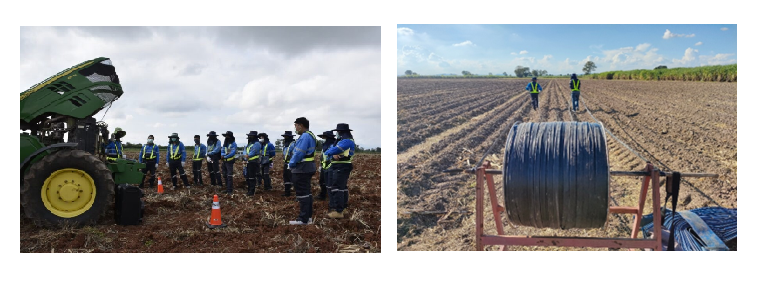 |
Demonstration of the use of agricultural machineries Practice in watering activities in the sugarcane farm
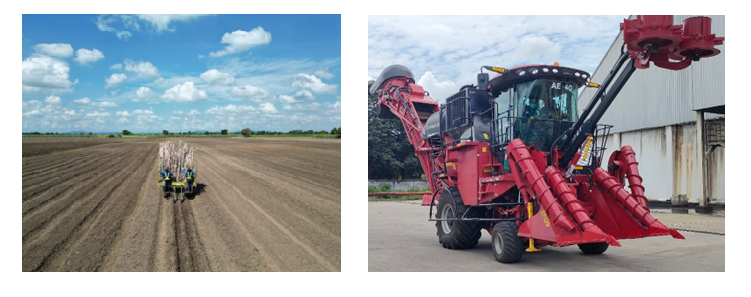 |
Practice in sugarcane planting activity Practice in driving agricultural machineries
